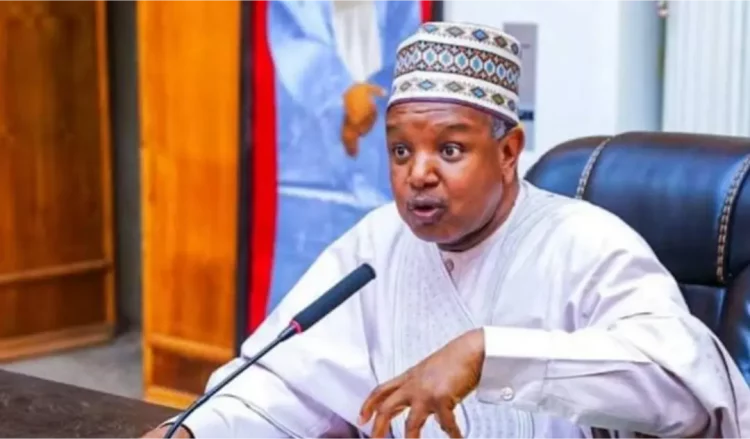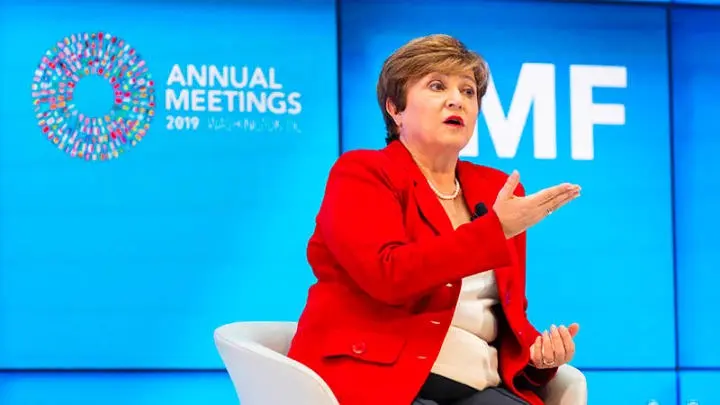Economy
Minister of Finance outlines economic strategy, says inflation made worse over import dependency, large informal economy

Amid worsening cost of living and hyperinflation rocking the nation, the Minister of Finance, Wale Edun, on Thursday lamented, saying the country found itself in this circumstance because of over dependency on importation and wholesale informal economy.
The Minister stated this while addressing the National Economic Council (NEC) meeting at the Presidential Villa, Abuja, stating that developed nations have largely achieved stable inflation rates.

He said the current challenges was linked to high inflation, subsidy removal, and foreign exchange reforms, which have placed significant strain on the populace.
Edun presented a range of government measures intended to mitigate the economic pressures on Nigeria’s citizens and spur sustainable growth.
He told correspondents that in his briefing to NEC, he emphasized the contrast between Nigeria’s inflationary pressures and the controlled inflation in advanced economies.
According to him, countries like the US and many in the Eurozone are seeing inflation levels close to their target of around 2% per annum, with countries such as Italy experiencing inflation rates even lower than 1%.
This stability is partly due to what Edun described as a “soft landing,” achieved by carefully balancing inflation control measures with continued economic growth and infrastructure spending.
“In our case,” he said, “inflation remains high, growth is relatively low, and debt levels continue to challenge economic stability.” Nigeria’s challenges are compounded by structural factors that affect inflation, including dependency on imports and a large informal economy.
He said the Tinubu administration has taken bold steps to address Nigeria’s economic woes by implementing long-overdue reforms, including the removal of subsidies on petroleum and foreign exchange.
According to the minister, previously, these subsidies cost the nation between $15 and $20 billion annually, a burden equivalent to around 5% of the country’s GDP.
While the subsidies’ removal was necessary, Edun acknowledged that it has led to a substantial increase in living costs, disproportionately affecting Nigeria’s poorer citizens.
However, he pointed out that the revenue freed up from these subsidies is now being redirected into critical social and infrastructure investments.
He noted that one of the administration’s notable initiatives is requiring local refineries to pay for crude oil in Naira, thereby stabilizing domestic petroleum pricing and reducing dependency on volatile international fuel markets.
According to Edun, this policy change alone has yielded an immediate fiscal boost of approximately N700 billion per month since October, with the funds funneled into the Federation Account to support national priorities.
The minister outlined a series of welfare initiatives aimed at alleviating the cost of living for Nigeria’s most vulnerable citizens.
These include a new minimum wage increase, direct financial assistance to households registered on the government’s social register, and wage support for low-income workers.
Edun reported that financial support payments have been disbursed to five million households, benefiting an estimated 25 million Nigerians.
Additionally, these payments are processed biometrically to ensure accuracy and avoid fraud.
He said a robust consumer credit scheme was also introduced to provide workers with access to affordable loans for essential goods and services.
Edun noted that over N3.5 billion has been distributed to 11,000 beneficiaries, enabling them to purchase compressed natural gas (CNG) kits for a more affordable and eco-friendly alternative fuel source.
Meanwhile, he stated, the administration’s student loan program has reached over half a million students, disbursing N90 billion to help cover educational costs and living expenses.
According to the minister, with food inflation a critical issue, the government has taken steps to address both the affordability and availability of staple foods.
Edun outlined a program to allow millers to import brown rice duty-free, which will be processed and sold at lower prices to ease the burden of high food costs.

























